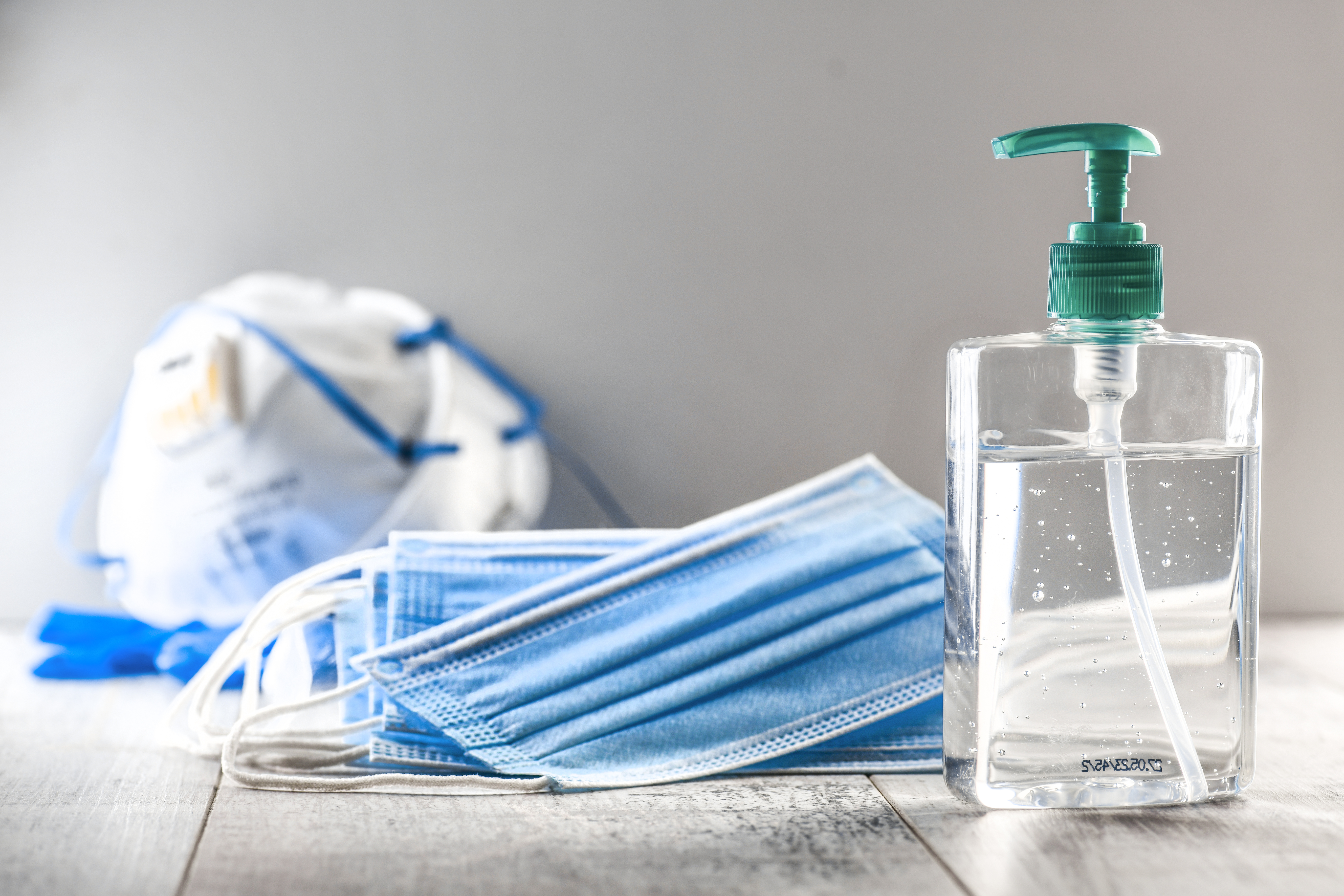8 out of 10 COVID-19 deaths have been in seniors over the age of 65. This is due largely to the fact that the immune system weakens as we get older. So, the body isn’t as equipped to fight off infections. Additionally, many seniors have chronic conditions, like diabetes or dementia, and these conditions can further weaken the immune system. That’s why it’s so important to take special precautions when you are around seniors. In this post, we will review everything you need to know to help prevent infections in the elderly.
What Is Infection Control?
According to the CDC, infection control “prevents or stops the spread of infections in healthcare settings.” These healthcare settings could include the hospital, a long-term care facility, or even a senior’s home. Infection control encompasses a variety of best practices, which we will review soon.
How Do Infections Spread?
Infections are caused by germs or viruses that enter the body. These germs can be found on various sources — some that we might not even think about. Sources could include:
- Countertops
- Remotes
- Doorknobs
- Sinks
- Skin
- Tables
- Dust
If an individual comes in contact with these germs, they can enter the body. Some germs are defeated by the immune system, but others manage to get past our natural defenses and make us sick. These germs can be left on new sources by the infected individual, continuing the spread.
Before you start worrying too much about germs, know that only a small portion of germs actually cause infection. In fact, many germs are helpful and actually live in our bodies already and help us stay healthy. Others don’t have any effect on us.
What Are the Most Common Infections in the Elderly?
Seniors are affected most commonly by the following contagious infections: pneumonia, the flu, skin infections, and COVID-19. However, not all of these infections are contagious. Let’s learn a bit more about each of these.
Pneumonia
Almost 1 million seniors are hospitalized with pneumonia each year in the US. Pneumonia is caused by germs that enter the lungs. This results in inflammation and fluid buildup in the lungs. The germs can be spread if the infected individual coughs or sneezes, doesn’t wash their hands, or shares utensils or cups with others. However, not everyone exposed to the germs will develop pneumonia. For many, the immune system can take care of the germs before they ever become pneumonia. But seniors and others with weakened immune systems are at a higher chance of developing the infection.
The Flu
The flu is a seasonal virus that occurs in cooler weather. It is caused by a virus that enters the body, and this virus can actually lead to pneumonia. This virus is very contagious and is spread through tiny droplets from coughing, sneezing, or even talking. These droplets can land on individuals or surfaces nearby. This virus is very common; however, seniors are at higher risk for complications.
Skin Infections
Many germs actually live on our skin, which makes sense because our skin is the first barrier of defense for your body. Seniors are at a higher risk of developing MRSA, a contagious and dangerous type of staph infection that is resistant to some antibiotics. This infection is characterized by red, swollen bumps on the skin. These are often very painful and filled with pus. The infection easily spreads through contact with the infected skin or indirect contact with something that has been contaminated.
COVID-19
You may be very familiar with COVID-19 by now. It is a very contagious infection that can spread through individuals without any symptoms, which makes it difficult to prevent. Symptoms include fever, chills, cough, fatigue, etc. — many of which are similar to the flu. As we mentioned earlier, seniors are at high risk for complications and even death as a result of COVID-19 with 8 of 10 deaths occurring in the senior population.
Now that you know a bit more about the common infections in seniors, let’s discover how you can prevent the spread.
How Can I Prevent the Spread of Infection?
There are many ways that you can prevent the spread of infection. And the types of precautions you put in place will largely depend on the type of infection. For example, you may not need to wear a face mask around someone with MRSA, while you should wear one around someone with COVID.
However, here are some general guidelines to keep yourself and those you love safe when dealing with infections.
- Wash your hands frequently. Wash your hands for at least 20 seconds and scrub with soap. Make sure to get in between your fingers and around your fingernails. You should wash your hands before you eat, after you use the restroom, if you come into direct contact with someone, if you touch your face, and more. If you aren’t able to wash your hands, make sure you have hand sanitizer.
- Wear protective equipment. When dealing with specific infections, you may need to consider personal protective equipment (PPE). This type of equipment includes face masks, face shields, gowns, gloves, and more. When around someone with an infection that can be spread through coughing and sneezing, you will want to make sure you have a mask or shield. If dealing with someone with a skin infection, make sure you wear gloves.
- Sanitize surfaces. Clean surfaces in the care environment regularly with an anti-bacterial solution. Hard, flat surfaces are especially susceptible to being sources of infection. Wipe down other common areas that people may touch as well because these could be hot spots for infection.
- Get vaccinated. If possible, get vaccinated against infections. There is a flu vaccine available every year, and the COVID-19 vaccine is now in distribution. These vaccines can help protect you and your loved ones from contracting and spreading illnesses.
For more information on how you can reduce the spread of infection, reach out to a care team near you.


